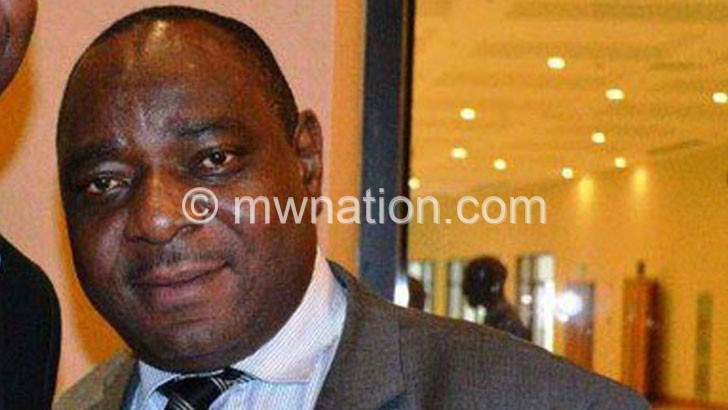MoU to indict money launders gathers dust
Investigation and prosecution of 13 individuals suspected to have laundered about K10 billion have stalled as the memorandum of understanding (MoU) to enable five government agencies to co-ordinate in the case is gathering dust years after its conception.
Top fiscal government agencies, including office of Director of Public Prosecution (DPP), the Anti-Corruption Bureau (ACB), the Reserve Bank of Malawi (RBM), Malawi Revenue Authority (MRA), the Financial Intelligence Unit (FIU) and Malawi Police Service (MPS) were expected to form a Senior Management Team (SMT) for the investigations and prosecution of the said cases.

In 2014, the country’s fiscal agencies completed investigations and established cases involving companies and individuals, who were suspected to have externalised over K10 billion. However, three years down the line no single case has been completed.
The MoU was developed to agree on the investigations and prosecution of individuals and companies suspected to be implicated in the criminality.
A source told The Nation that the MoU was gathering dust because some members of the agencies that were to append their signatures to the formation of SMT were unwilling to do so.
But RBM spokesperson Mbane Ngwira said even in the absence of the MoU, the agencies are jointly trying some financial cases.
He told The Nation that technically an MoU only comes into existence after it has been finalised and signed, saying if it is not finalised nor signed it is non-existent.
“If it existed, the MoU would merely assist the concerned parties in some administrative matters. Consequently, even in the absence of the MoU, some financial crime cases are being prosecuted jointly by the RBM, the DPP’s chambers, the ACB and MRA,” he said.
Ngwira cited a case of Muhmmad Jawadi, a Pakistani national, who was convicted recently of attempting to illegally transfer foreign currency amounting to $269 970 (about K202 million).
“The hearing of the money laundering charge against Mr. Muhammad Jawadi will continue on February 9 2017. Secondly, State prosecutors were in court on January 3 2017 pertaining to the case of Republic versus Muhammad Rafiq Amad who is answering several charges pertaining to illegal externalisation of foreign currency and money laundering. Hearing of this case will continue on February 8 2017,” he said.
MRA spokesperson Steven Kapoloma pushed the matter to FIU, saying matters regarding externalisation of money are handled by the unit.
But FIU director Atuweni Agbermodji told The Nation that: “Having talked to RBM, ACB, DPP, I have been told that this MoU is still in the development stage, that the technicians are still working on it and that RBM is leading the process being the ones who regulate forex.”
She observed that while coordination with other law enforcing agencies is there, still the Financial Crimes Bill, which gives FIU powers to investigate, could have given powers to FIU to forms task forces if passed.
“As FIU, we can confirm that we have a good relationship which can be strengthened. In this regard, the Financial Crimes Bill, which is due to be discussed in Parliament, will give the FIU powers to form task forces on an adhoc basis. We believe this will go a long way in enhancing coordination,” she said.
On her part, ACB spokesperson Egrita Ndala said the bureau was not aware of the existence of the MoU or even the cases that it highlighted, hence RBM was in a better position to respond to queries on externalisation of money.
The office of the DPP had not yet responded to our questionnaire as we went to press, but a legal expert familiar with issues surrounding money laundering Jai Banda admitted that the lack of cooperation between some government departments—sometimes due to power struggles—has been affecting investigations and prosecution of money laundering cases.
“State institutions also are unwilling to share information because of lack of mutual trust which gives rise to fear of possible leakage of sensitive material to unauthorised persons. The State institutions regard themselves as rivals and these result in a weakness in the control of money laundering,” he said.
Banda said resource limitations limit the capacity of government agencies to effectively exchange information among themselves and with private financial institutions such as banks which have at their disposal comparatively sophisticated information technology systems.
In the MoU office of the DPP was given a role of providing guidance and advice throughout the investigation and prosecution process and to be pro-active in identifying and advising on how to rectify evidential deficiencies.
The office of the DPP was also tasked to provide advice on prospective charges for efficiency and focus in the investigation, the likely admissibility of evidence, how evidence should be assembled, and the use of coercive powers for the compulsion of witnesses or obtaining evidence, the extradition of a suspect and the restraint of a suspect’s assets, among others.
MRA and RBM were to identify the legislation relevant to the operation and their investigative and coercive powers available to be employed, provide the other parties with details of each suspect, including name, date of birth, identity and/or passport number and last known home and/or business address and provide the DPP with all evidence assembled in the investigation of the alleged offences in accordance with agreed standards and timescales.





